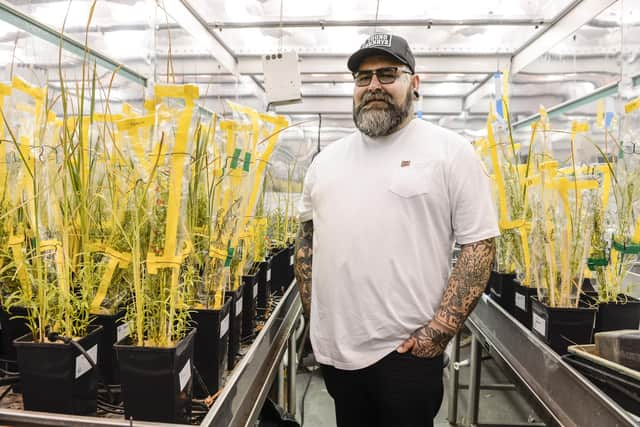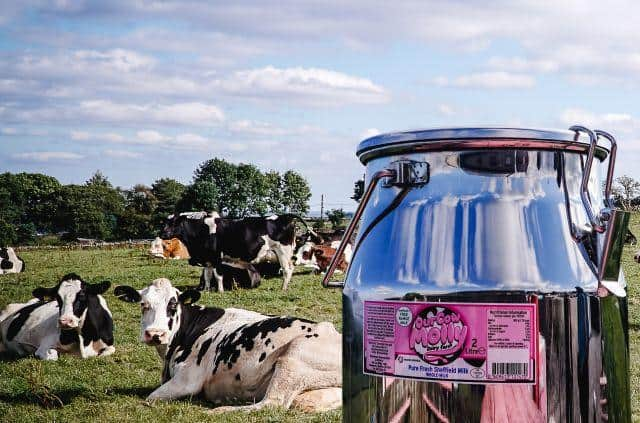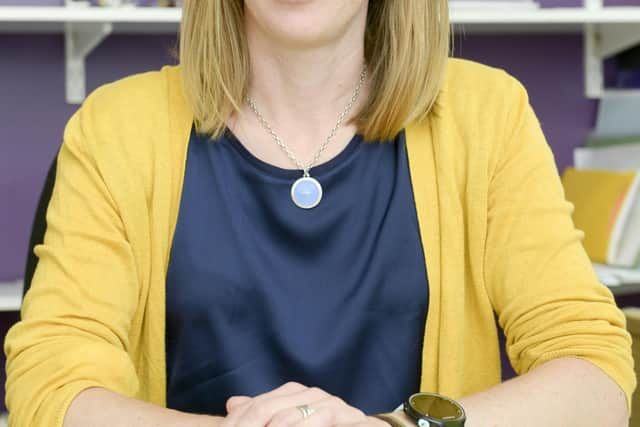Sheffield university staff and students to offer their research as solutions to climate crisis at COP26
and live on Freeview channel 276
With an urgent mission to establish a global policy for reaching net zero greenhouse gas emissions by 2050, COP26 is set to be one of the most important climate summits in history.
University of Sheffield’s academics and the next generation of environmental scientists will share their expertise to help international policymakers identify practical solutions to global food, energy and climate challenges, to create a sustainable future for everyone.
Advertisement
Hide AdAdvertisement
Hide AdThe university’s Institute for Sustainable Food is committed to overcoming the problem of food access as the global population increases using cutting-edge science.


Duncan Cameron, Professor of Plant and Soil Biology and Co-Director of the Institute for Sustainable Food said: “The aims of COP26 - securing net-zero emissions, adapting our communities and natural habitats for climate change and mobilising financial resources to fight the climate crisis - are crucial to our collective health, wellbeing and livelihoods.
“Frankly, our entire way of life depends on the success of our action to tackle climate change. I have been investigating ways to secure a sustainable global food system for a number of years.
"We used our platform at COP to highlight how our soils are being destroyed; nearly 33 per cent of the world’s arable land has been lost to erosion or pollution in the last 40 years and vital action must now be taken to prevent the devastating knock-on effects. COP26 is another chance to sound the alarm bell.”
Advertisement
Hide AdAdvertisement
Hide Ad“We are looking at the solutions to our food crisis from farm to fork. For example, we led a unique investigation into the potential for urban food growing, showing that urban based gardens could provide 15 per cent of a local population with their five a day.”


In order to keep global warming to 1.5 degrees celsius or below, one problem that must be tackled is turning to sustainable aviation fuels which will reduce carbon emissions.
The University of Sheffield Advanced Manufacturing Research Centre is helping to transform all aspects of aerospace manufacture and supply chain by developing new concepts with industry, scaling up production and deploying globally competitive new methods of manufacture.
The new Sustainable Aviation Fuels Innovation Centre will allow the capture of CO₂ and green hydrogen, convert them into sustainable aviation fuels and analyse their performance all in one single location.
Advertisement
Hide AdAdvertisement
Hide AdThis provides the missing link to help producers of sustainable aviation fuels bring their products to market. Having such a facility in the UK will accelerate regulatory approvals of new fuels and give the UK certification capabilities.


Director of the University of Sheffield Energy Institute and Managing Director for the Sustainable Aviation Fuels Innovation Centre, Professor Mohamed Pourkashanian, said: “The centre will help the UK to determine the best pathways to net zero aviation, and play a crucial role nationally and internationally in delivering truly sustainable flight.”
University of Sheffield’s Grantham Centre for Sustainable Futures brings together experts from academia, business and policy to create a more sustainable future through innovative solutions to make an impact locally and globally.
From co-creating sustainable solutions to life at the Zaatari refugee camp such as recycling old mattresses to make hydroponic systems, to using recycled plastic to improve the global soil crisis - The Grantham Centre takes what might seem counterintuitive ideas into tangible solutions.
Advertisement
Hide AdAdvertisement
Hide AdOn a local level The Grantham Centre helped forge an innovative partnership with a Sheffield farm to help reduce plastic waste in University cafes by 87,000 single-use plastic bottles a year.
By switching to milk churns from local dairy farm Our Cow Molly, the carbon footprint of milk delivery to the University has been dramatically reduced by over 65 per cent - equivalent to 6.5 tonnes of CO2 every year.
Dr Rachael Rothman, Co-Director of the Grantham Centre for Sustainable Futures and Academic Lead for Sustainability at the University said: “It is so important we work together to reduce single use packaging and this project is an excellent example of how impact can be achieved by interdisciplinary, collaborative working.
"It is fantastic to see the milk churns in action in University cafes, reducing the carbon footprint of the milk delivery by over 65 per cent. We are continuing the research, investigating how to make the cleaning processes as efficient as possible and hope to roll out reusable churns across the city.”